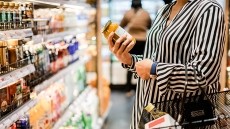New evidence of need for clearer COOL info
Country of origin labelling (COOL) is currently being debated in Brussels as part of new EU-wide on food labelling. Current legislation makes it mandatory for beef, fish, veal and shellfish, wine, most fresh fruit and veg, honey, olive oil, and poultry meat from outside the EU.
To help inform its participation in discussions in Brussels, the UK’s Food Safety Authority commissioned a package of studies on how consumers perceive, use and act upon nutritional and general food labelling.
The new report presents a synthesis of five research studies commissioned by the FSA, three of which were specifically about COOL. Two had COOL elements to them.
The researchers, from Oxford Evidentia, found many consumers thought country of origin refers to the place a product was born/grown or raised/harvested. In fact, it refers to the last place of substantial change – although the FSA has previously recognised in guidance that, where harvesting and processing do not take place in the same country, there may be a need to provide extra information on the source of primary ingredients.
There is a recognition, too, that food labels present consumers with more information than they can reasonably process in the time it takes to decide to buy a product. “This often leads to confusion, misunderstanding and uncertainty which, in turn, causes scepticism and mistrust of food labels,” the report says.
Prominence
Consumers said they would like COOL information prominently displayed, with easily visible strong images that relate to information the consumer really wants to know – especially where the product began or was raised.
Just 11 per cent of respondents in one of the surveys said unprompted that they look for information on packages. When they were specifically asked whether they look for COOL info, on the other hand, 52 per cent said they did.
Evidence on the relationship between price and willingness to pay for a certain country of origin is mixed. Those who already adhere to natural, organic and local production ideas were most willing to pay a modest mark-up, despite their economic circumstances.
Breaking down barriers
“The issue is not about more origin labelling but the need for greater clarity on the labels on some of our most popular foods,” said Tim Smith, Chief Executive of the FSA.
“European labelling rules being proposed will require businesses that make origin claims to provide further information, so that people will know where their food actually comes from, not just where it was processed.
“We support this approach as it effectively strengthens and gives legal backing to key elements of the existing FSA voluntary labelling guidance. We will use the results of this research to inform our discussions in Brussels.
“In the meantime, we believe that the willingness of food businesses to take account of our guidance in their labelling practices has improved the information available to consumers and we will continue to encourage uptake and, in discussion with food businesses, identify any barriers to providing this information.”
The FSA’s new report is available here.






















